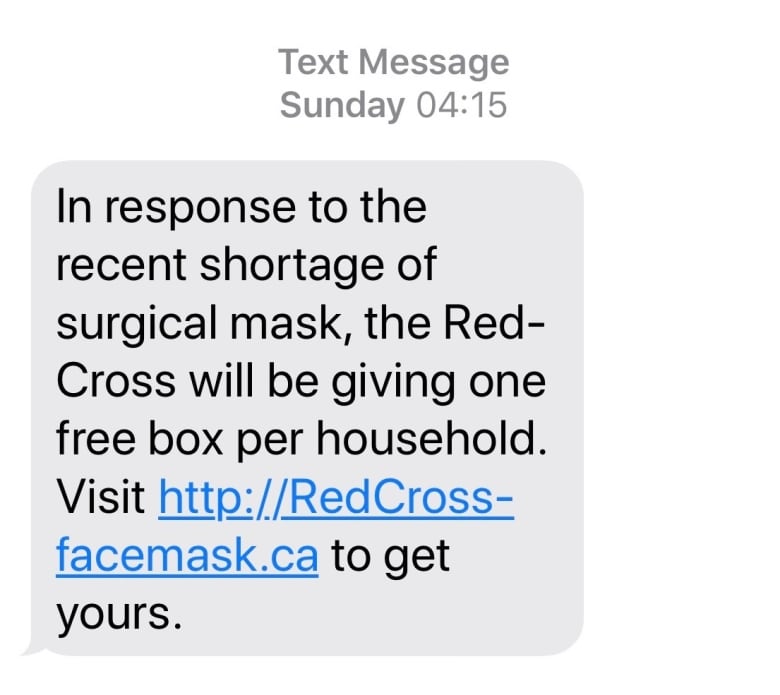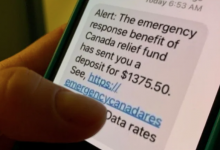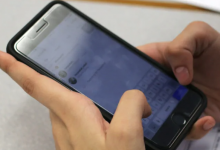Here’s what you need to know about the COVID-19 scams popping up in Canada
Stop and think before you share personal information over the phone or click on COVID-19-related links — that’s the advice coming from the Canadian Anti-Fraud Centre, as reports of coronavirus scams pop up across the country.
“Fraudsters are quick to pick up on world news,” said Jeff Thomson, a senior RCMP analyst with the anti-fraud centre.
“[They’re] really good at creating that situation of urgency or panic when they want people to react and do what they’re saying right away.”
The key, Thomson says, is to know that these scams are happening and to check with friends, family, or official government websites before giving away any of your information.
Here are some of the COVID-19 scams that have been reported:
Text messages offer free face masks
The most prolific scam in Canada so far has been a text message, from a number claiming to be the Red Cross, offering free face masks.

The message contains a link to a fake Red Cross website where the person is then asked to either make a payment, either for a donation or to pay for delivery of the mask, according to Thomson.
The Canadian Red Cross has confirmed that it is not sending out any text messages or emails like this and advises anyone who gets one to delete it immediately.
Phishing emails
Fraudsters are sending emails pretending to be from the World Health Organization or the Public Health Agency of Canada with links purporting to provide updates on the organization’s response to the COVID-19 pandemic.
Thomson says not to click on those links, because the website will likely try to trick you into providing personal information. Instead, if you’re looking for information, you should visit the federal government’s official website for updates.
Test results phone call
Some people report receiving phone calls and voicemails from scammers pretending to be from a public health agency.
In these calls, the fraudster says the person has tested positive for the coronavirus and, to get a prescription, must provide the scammer with their credit card and health card numbers.
Real public health officials will not ask for your credit card information.
There have been some reports of scammers going door to door, either selling fake decontamination services or fake coronavirus testing kits.
Only hospitals and public health agencies are authorized to perform coronavirus tests, and will not charge. No other tests are genuine or guaranteed, according to Thomson.
Thomson also warns that more scams are likely to pop up in the days and weeks ahead.
These could include phone calls to businesses saying they have to update first aid kits, and loan scams exploiting of the financial fallout of the pandemic.
If you’re the target of a COVID-19 scam, Thomson urges you to report it to the Canadian Anti-Fraud Centre or your local police department.
CBC







Redes Sociais - Comentários